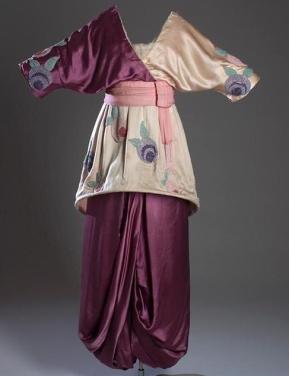- This event has passed.
Giapponizzati. Racconti di un viaggio di moda
26 October 2017 @ 9:30 - 1 February 2018 @ 17:00
Event Navigation

“Giapponizzati. Racconti di un viaggio di moda” (“Japanized. Stories of a fashion journey”, translator’s note) for the first time an important exhibition traces the influence that Japanese culture hadon Italian fashion and more. The exhibition-event, under the aegis of Regione Lazio and the President Nicola Zingaretti, LAZIOcrea and with the contribution of the Department of Education, Research, School, University and Tourism led by Vice President Massimiliano Smeriglio, will be hosted from October 26th 2017 to January 15th 2018 at the prestigious rooms, just restored, of Santa Severa’s Castle, a few steps from Rome.
The union between the theme of the exhibition and the Castle – today the Museum – is revealed with the force of evidence, by creating the ideal scenography. The exhibition, curated by Stefano Dominella, narrates not only the complex phenomenon that has been the “japanization”, but also the interweaving of different cultures that have given rise to socio-economic, political and cultural phenomena.
“Giapponizzati. Racconti di un viaggio di moda” is based on the journey of Hasekura Tsunenaga, the first Japanese samurai-ambassador, emblematic figure and vassal converted to Christianity who, in 1615, arrived in Italy wearing sumptuous Indian drapes and Roman hats, symbolizing how fashion manages to cross any border. The ambassador was housed in the castle of Santa Severa, a short distance from the Roman port of Civitavecchia, an important theatre for cultural exchanges. Hasekura Tsunenaga left Ishinomaki (Japan) in 1613 and was sent to Rome to meet Pope Paul V. This journey represents the only diplomatic and political response, during the years of the great navigations, of East Asia to the West. The diplomatic relations between Italy and Japan, which arose out of necessity of a commercial nature, then continued positively in the following decades and had enviable cultural consequences. Fashion tells history, contamination, culture. The story is read on the dressed body. Japanese exoticism has been a topic of great inspiration in literature, music, theatre, art and fashion. In the early 1900s a widespread passion for Japan and its culture broke out in Europe and in Italy, japanism was born. Female fashion changed drastically, preferring larger garments with a strong oriental imprint, volumes, rigid fabrics, overlays, made of different fabrics and colors, but harmonious, reflecting the seasons and moods: creations inspired by kimonos. At the same time, after a period of great closure, Japan was inspired by the West, to such an extent that even women began to wear, as an alternative to the kimono, European dresses and be called moga (modern girls). A bilateral contamination where the tradition of a culture becomes the transgression of the other without compromising its elegance. Following the rhythm of the story, “Giapponizzati. Racconti di un viaggio di moda” retraces the sequence of styles and different periods, between revival and contemporary. The exhibit shows garments created by well-known designers, emerging designers, tailors and international guests who have interpreted the theme of Japan in various ways. Here on display, set up as works of art, ancient Japanese kimonos, obi, hakama, coming from important private collections.
Among the 40 present creations: Antonio Marras, Gattinoni, Comme des Garçons, Maurizio Galante, Issey Miyake, Yohji Yamamoto. Among the young designers: Tiziano Guardini (winner of the Green Carpet Awards), Italo Marseglia, Ivan Donev, Santo Costanzo, Alessandra Giannetti, Silvia Giovanardi, Tommaso Fux. In addition, also brands between art and fashion like NOH (Anna Rotella in collaboration with the artists Marco Carac and Fabio Truffa) and Dedalus Art (the artist Marco Carac in collaboration with the designer Anna Rotella). A tribute to the great theatre with astonishing costumes from the historical archives of the Teatro dell’Opera di Roma and Annamode. The setting of the exhibition, in addition to authentic rugs and fabrics of the Land of the Rising Sun, will be enriched by the sculptures inspired by the Manga created by the artist Federico Paris.
Free entrance inauguration
The exhibition is open from Tuesdays to Fridays from 9.30 to 16
Saturdays, Sundays and holidays from 10.30 to 17 hours
with the entrance ticket of the Castle: full: € 8.00 reduced: € 6.00
the ticket office closes an hour earlier